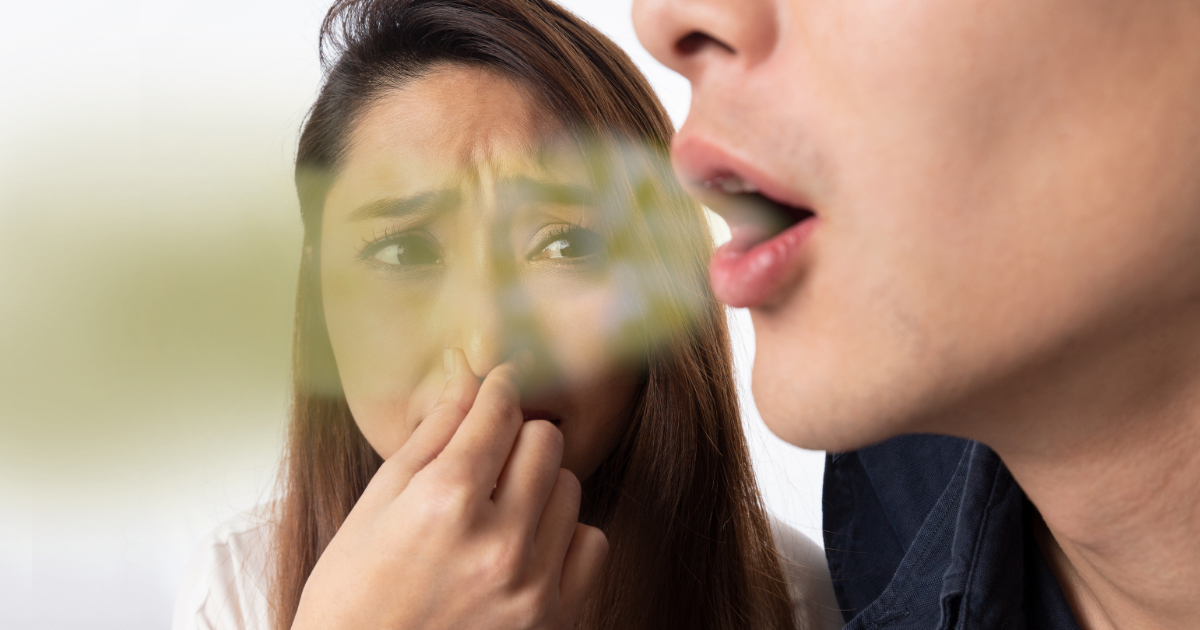Your Breath and Your Dental Health
When I speak at events, I often answer questions afterward. To maintain some confidentiality, I often ask people to get close so it remains private. When you’re that close to people, you get a really good sense of the odor of their breath. People worry about garlic and onions but to me, those are normal. What shocks me is the odor of gum disease—I can’t believe people can’t smell it. Based on an article Paula sent to me, I understand it now.
The current name for it is smell blindness. Based on interviews with nose and throat specialists, it all has to do with saturating the nerve cells that detect odor, called olfactory cells, with the molecules from that odor. The nerve cells become so used to that stimulus, a person can’t smell that odor anymore. It’s kind of sad when you can’t smell your expensive perfume anymore, but it’s not a big problem. You probably don’t notice how your house smells until you walk back inside after being gone for a while. But when you carry the source of the smell around with you in your mouth all the time, it’s a huge problem and hard to solve.
I don’t get worried about adapting to many smells. If you like cats, there’s going to be a litter box odor you may not notice any more. Same may be true of the perfumed shampoo or conditioner you use every day. But the odor associated with gum disease means that there’s infection, and that’s problematic. Not only can it destroy your gums and loosen your teeth, the bacteria can get into your blood stream and impact your heart.
Not only is it bad for your health, it’s not good for your social life or professional prospects. And to look at it from another perspective, if you have a business where your employees get up close to people—checking their vision or cutting their hair, for instance—it’s a smart move to offer dental care. And it’s the right thing to do.
The author suggested that in a quiet moment, you ask someone you really trust to smell your breath. Even if you breathe into your cupped hands held in front of your nose, you may not be able to smell it. Better to ask a friend or loved one to do it to get an impartial opinion. If it smells like infection, see a dentist for a professional analysis. This one is too easy, and potentially too deadly, to ignore. Whether you have bad breath or not, everyone should be flossing every day and brushing after meals.
For more info on treatment for periodontal disease, go to the Store at drchet.com and check out The Bottom Line on Periodontal Disease; Insiders get a free copy of any Bottom Line.
What are you prepared to do today?
Dr. Chet
Reference: https://www.washingtonpost.com/wellness/2024/08/02/smell-bad-breath/



